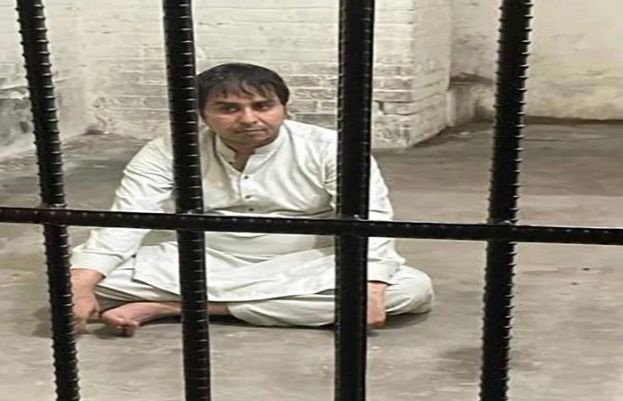
This year's Hajj will see the number of pilgrims drastically reduced — to 10,000 from last year's 2.5 million.
The kingdom has put strict safety protocols in place with a mandatory quarantine that began on Tuesday.
Read on to discover what the Hajj experience will be like for pilgrims this year:
Who will perform Hajj?
Saudi authorities initially said only around 1,000 pilgrims residing in the kingdom would be permitted for Hajj but local media reports say as many as 10,000 will be allowed to take part.
Some 70% of the pilgrims are foreigners residing in the kingdom, while the rest will be Saudi citizens.
The media ministry said non-Saudi residents of the kingdom from around 160 countries competed in the online selection process.
It is not known how many applied.
Safety protocols
Those selected to take part in this year's Hajj were subject to temperature checks and placed in quarantine on Tuesday as they began trickling into Makkah at the weekend.
State media showed health workers sanitising their luggage, and some pilgrims reported being given electronic wristbands to allow authorities to monitor their whereabouts.
Workers, clutching brooms and disinfectant, were seen cleaning the area around the Kaaba, the structure at the centre of the Grand Mosque draped in gold-embroidered cloth towards which Muslims around the world pray.
Hajj authorities have cordoned the Kaaba this year, saying pilgrims will not be allowed to touch it, to limit the chances of infection.
They also reported setting up multiple health facilities, mobile clinics and ambulances to cater to the pilgrims, who will be required to wear masks and observe social distancing.
"There are no security-related concerns in this pilgrimage, but it is to protect pilgrims from the danger of the pandemic," Khalid bin Qarar Al-Harbi, Saudi Arabia's director of public security, told reporters on Monday.
All worshippers were required to be tested for coronavirus before arriving in Makkah and will also have to quarantine after the pilgrimage as the number of cases in the kingdom nears 270,000 — one of the largest outbreaks in the Middle East.
They were given elaborate amenity kits that include sterilised pebbles for a stoning ritual, disinfectants, masks, a prayer rug and the ihram, the seamless white garment worn by pilgrims, according to a Hajj ministry programme document.
Past disruptions
Conflicts, sieges and pandemics have disrupted or forced the cancellation of the annual pilgrimage down the years from at least the eighth century.
According to AFP, it is believed that the Hajj was last completely cancelled in 1798, when Napoleon's invasion of the region made it unsafe for pilgrims to travel to Makkah.
TRT World reports, however, that the spread of the plague in 1814 in the Hejaz region lead to 8,000 deaths and the pilgrimage was cancelled that year as well.
Reactions by applicants
The Hajj ministry has fielded a deluge of anguished queries on Twitter from rejected applicants.
But Hajj Minister Mohammad Benten insisted the process was transparent, telling the Saudi-owned Al-Arabiya television that "health determinants" formed the basis of selection.
"I did not expect, among millions of Muslims, to be blessed with approval," Emirati pilgrim Abdullah Al-Kathiri said in a video released by the Saudi media ministry.
"It is an indescribable feeling... especially since it is my first pilgrimage."
Despite the pandemic, many pilgrims consider it is safer to participate in this year's ritual without the usual colossal crowds.
Even in a regular year, the Hajj leaves pilgrims exposed to a host of viral illnesses.
from latest-news - SUCH TV https://ift.tt/306Kjxm

No comments:
Post a Comment